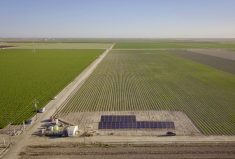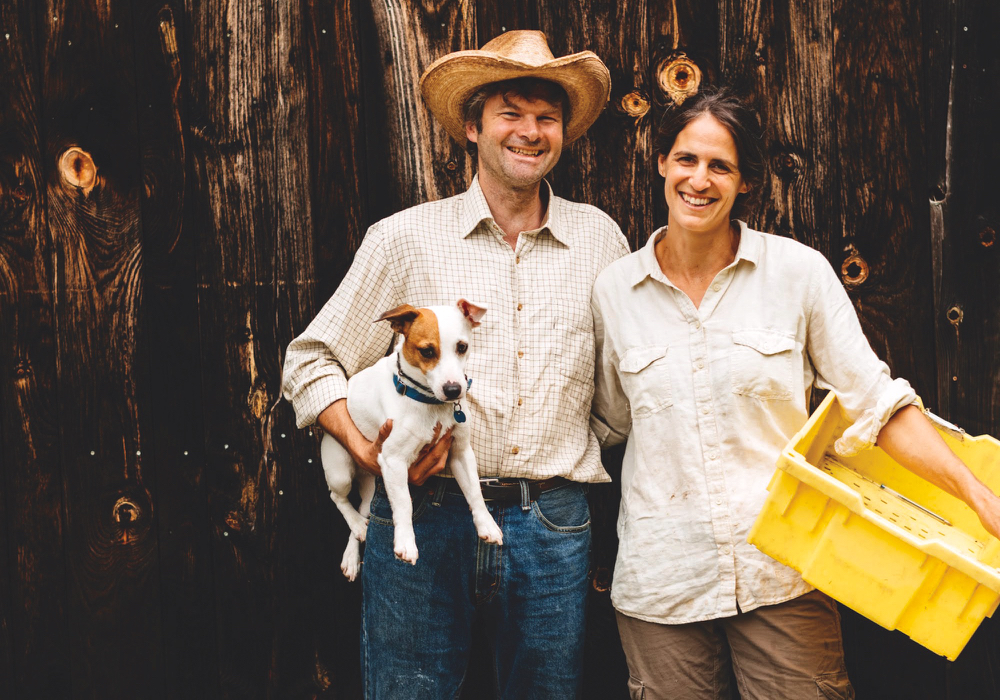By nature, farmers are problem solvers. Farmers deal with production, mechanical, financial, marketing, and business challenges on a daily basis, and the success of their farm operations depends upon their ability to solve those problems quickly and efficiently.
In fact, farmers are so adept at solving their problems, the temptation is to think that every problem can be solved. Or to put it another way, there aren’t any problems that can’t be fixed.
Unfortunately, in today’s shrinking world, that attitude may actually be creating problems for farmers, and those problems may be bigger and more numerous than in past.
Read Also

Sibling squeeze part 6: The emotional stakes of a family legacy
The final instalment in a six-part series exploring the challenges of sibling conflict and the effect it can have on…
Here’s why.
In the early 1970s, social scientist Dr. Horst Rittel formulated the concept of “wicked problems.” He felt some problems are impossible to solve partly (but only partly) because of incomplete or contradictory information about them, or because of changing circumstances.
What’s worse, attempts to solve a wicked problem often result in the creation of other problems.
While the concept of wicked problems was developed to address social planning and policy issues, it is very applicable to agriculture policy. In an Ivey Business School agri-food blog dated April 20, 2012, Dr. Nicoleta Uzea wrote: “What struck me the most from the event (Growing Our Future: Making Sense of National Food Strategies conference) was that both the conference presenters and the attendees referred extensively to key agri-food issues such as biofuel production, sustainable farming, business risk management and underinvestment in agri-food R&D as ‘wicked problems.’”
Uzea continued: “Unlike ordinary problems, wicked problems are characterized by a lack of boundaries around the problem — e.g. a wicked problem is entwined with other problems, or a solution to the problem creates a new problem somewhere else. Also, wicked problems involve complex interactions and feedbacks among social, economic, political, and biophysical elements, so that even if there are solutions to the problem, they may be virtually impossible to determine or to implement. As a result, wicked problems can never be solved (in the sense that they can be eliminated), but rather they become better or worse. In addition, wicked problems involve a lack of agreement among the people affected by the problem as to what constitutes a good or bad outcome. This may be because different people are differentially affected, or it may be that there is a lack of shared values.”
Professors Domenico Dentoni and Otto Hospes of Wageningen University, Netherlands and Brent Ross, Michigan State University collaborated on a paper entitled “Managing Wicked Problems in Agribusiness: The Role of Multi-Stakeholder Engagements in Value Creation,” and there are a number of points in their paper which farmers need to consider:
- “Wicked problems have cause-effect relationships that are difficult or impossible to define, cannot be framed and solved without creating controversies among stakeholders, and require collective action among societal groups with strongly held, conflicting beliefs and values.”
- “They (wicked problems) result in outcomes that are either uncertain or unknowable, and often affect multiple stakeholders throughout the agri-food system and beyond.”
- “Agribusiness managers do not always recognize that these are wicked problems that require not only the adoption of technological innovations but also or primarily organizational change. In particular, addressing wicked problems requires firms to engage in strategic dialogue and to take action with a diverse set of stakeholders both inside and outside the supply chain at levels that have been uncommon in the agri-food sector”
Most importantly, Dentoni, Hospes and Ross wrote: “Wicked problems cannot be resolved through finding ‘right answers’ or ‘solutions’ but rather, they must be managed.”
Wicked problems in Canadian agriculture
There are other wicked problems facing Canadian farmers and agriculture in this country beyond the four that Uzea listed, and many of them have an even greater and immediate impact on individual farm operations.
Issues such as water usage, land drainage, use of antibiotics in livestock production, and rail movement of grain can pit the individual farmer’s interests against those of other farmers, non-farmers, other businesses and society in general.
No matter what policy or action is proposed to address these problems, there will be winners and losers. Attempts to “solve” other issues including GMO and biotech, environmental degradation, biodiversity loss, and even climate change could lead to huge impacts on farmers, depending upon the strategies adopted to address these issues and whether they are or aren’t in the best interest of farmers.
- More with Country Guide’s Gerald Pilger: The farmers’ share keeps falling
Solving a wicked problem
There are three textbook ways that wicked problems can be addressed: authoritatively, competitively, and collaboratively.
Most farm problems are solved authoritatively. The farm manager decides what is to be done to solve a problem and carries out that action. However this approach rarely works well when dealing with wicked problems because it is doubtful that an individual or small group charged with addressing an issue will have considered all possible points of view of the problem.
So, although the decision-making process is simplified in an authoritative environment, when policy and decisions are left up to a single person or small group, the views of some stakeholders can be easily ignored. A perfect example of authoritative decision-making is how the government handled the wicked problem of the Canadian Wheat Board. Without question, there have been both winners and losers from the action the government took to end the monopoly. At the same time, other problems have been created including unhealthy basis levels, shipping problems and a declining buyer confidence.
The jury is still out on how much the ending of the monopoly has contributed to these new problems, but two things cannot be denied. First, the ending of the monopoly has created problems, not just solved them. And second, we will not have a full understanding of the scale and cost of problems for years, if ever.
Opposing points of view
Most wicked problems are characterized by two or more groups with opposing points of view. A typical approach by policy-makers to address wicked problems is to pit the opposing groups against each other.
Unfortunately, each side is typically so focused on pushing their own position that they do not try to find the best overall solution. Instead, they fight for the solution that is simply best for their position.
This seems to be the way most wicked problems in agriculture are handled. Issues such as GMO and biotechnology have been made possible by regulatory approval, but then problems that are created by those approvals such as loss of markets and contamination of conventional crops are left to the opposing sides to fight over.
Rather than managing the problem, it continues to grow as each side defends the position more rigorously and rhetorically.
Consider the Better Beef campaign of A&W. While A&W is using the public’s negative perception of hormones and additives in food to market its burgers, ranchers see this as A&W attacking the quality of commercial beef.
A collaborative approach is the most desirable way to address a wicked problem. This requires engaging all shareholders in the decision-making process, and no action is taken on an issue until there is an agreed-upon strategy by all parties. Unfortunately, this requires participants to be open minded and to look at an issue from both sides. It requires a lot of time, and sharing of knowledge.
Besides, the agricultural industry has become so fragmented, commodity-specific farmers tend to spend more time arguing among each other rather than joining forces to address the concerns the public has about overall modern farm practices.
Most farmers think of themselves as independent businessmen and women.
Instead, farmers have never been as dependent on other businesses, government, and society in general as they are now.
As a result, the problems farmers face are bigger and tougher to solve. Any solutions are likely to impact not only other farmers, but other businesses and the public.
It is critical that farmers work together in addressing wicked problems. Most importantly, farmers need to understand these problems are unlikely to ever be solved. The best we can do is to manage them!
















